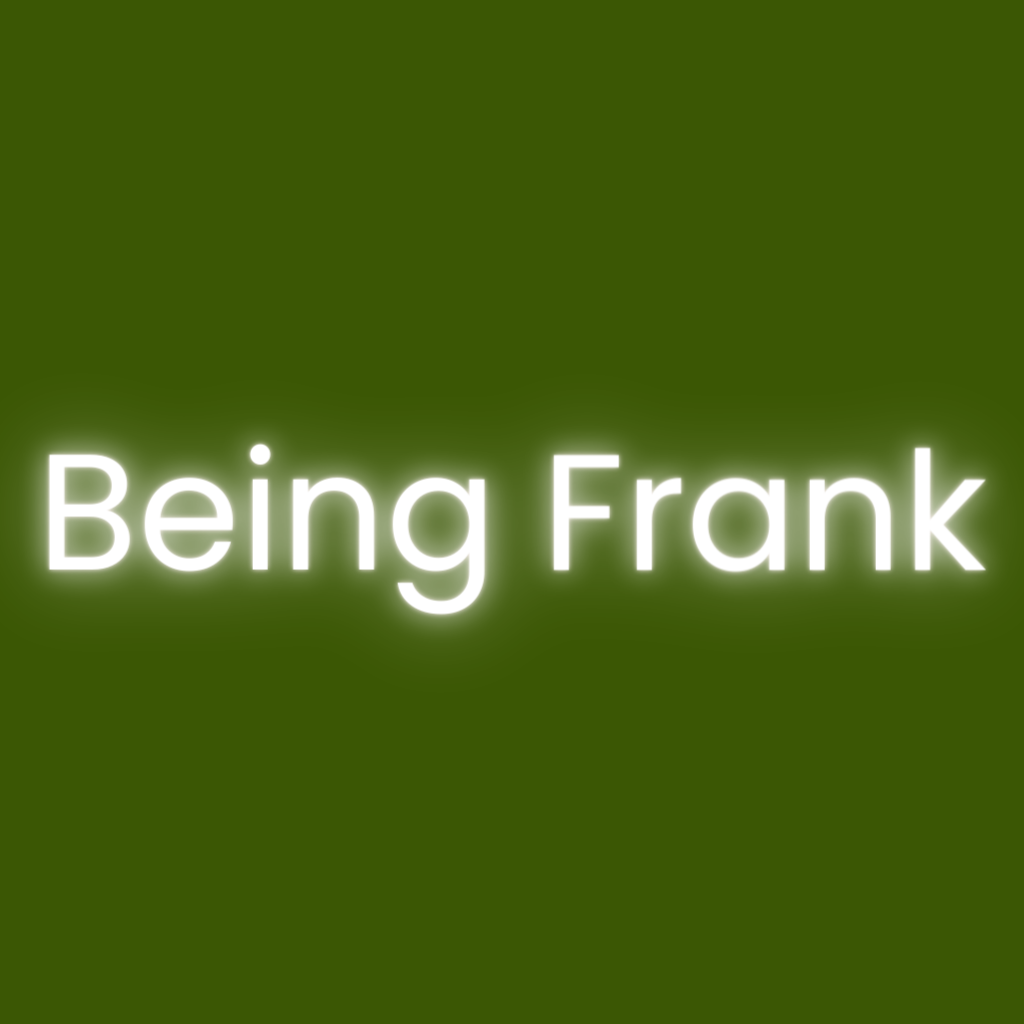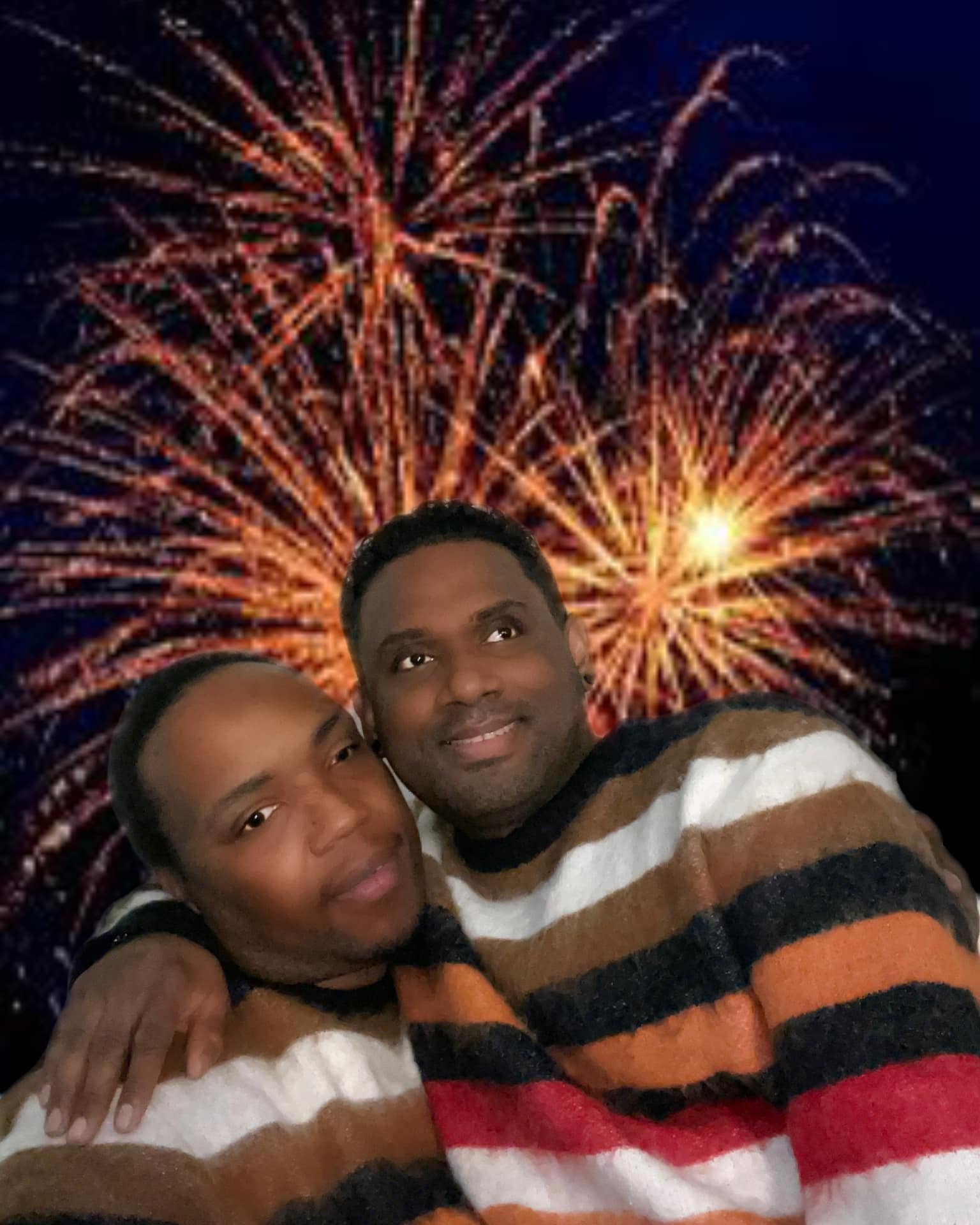Being Mark: The panic when low vision gets even smaller
Subscribe for more stories like this one.
“I woke up at my best friend’s house the first time it happened. I’d spend so much time with Paradise,” Mark Gross, a legally blind man living and thriving in NYC, said thinking of his friend. “My sight was extra blurry one morning…but it would always go away,” he continued. This kept happening to Mark off and on until one day a doctor gave him some drops and his eyes got better; the blurriness stopped for good.
Mark’s a close friend of mine who was also born with low vision. He has retinopathy of prematurity (ROP), due to his premature birth. I sat down with him to learn about the thick lenses his classmates hated seeing in his eyeglasses, his experience the first time he used a cane, and how he feels about the huge unemployment problem amongst people with low vision. Instead, I heard a raw story of what it means to be deeply grateful for something you have so little of. And I finally learned how Mark is such a positive force in my life and the lives of other NYers with low vision.
Thrilled to be healed by the eyedrops, Mark moved to Atlanta ready to embrace life in his early 20’s. Far from family, his friends, the freedom granted by NYC’s transit system, and the familiar programs he could rely on back home, the small amount of vision Mark had suddenly faded to darkness. Just inches from his face, Mark could no longer distinguish the five fingers on his hand. Something scary was happening.
A retinal detachment explained Mark’s loss of vision and why the eyedrops were a false cure. He quickly returned to NYC to undergo a surgery to reattach his retina. During his recovery period Mark recalls verbalizing, “Please let this eye work. Please let this last little bit of vision come back.”
For more than a year Mark’s eyes were extremely sensitive and he spent his time trying not to strain. “I used to do this test with my hand in front of my eye: ‘Can I see my hand?! Can I see my hand?!’ I did it every day. I’d go in front of a light so I could see my hand and my shadow. Is it getting less blurry?” Mark reenacted.
Mark poses in sunglasses with a white coffee mug at a booth in a restaurant. His partner, also visually impaired, used Apple’s accessibility feature called VoiceOver to capture this photo. VoiceOver describes objects captured by the camera lens, detects if faces are in focus, and explains a photo subject’s position in the frame - left, middle, etc.
One day, after this difficult year obsessing over the decline in his already impaired eyesight, Mark noticed five distinct fingers. Hallelujah. People with low vision are grateful to see at all. We struggle when our gratitude brushes up against cruelty delivered by people who use their vision to drive a car, earn an income in a job they might even like, cook their own dinner, and see the faces of the people they love.
Summarizing the outcome of this surgery: after a year of recovery, Mark had a return of vision to a degree but he sees very differently now. And yet, he was somehow prepared. “I was visually impaired during my whole school career. I had mobility instruction and in second grade I learned to use a cane,” Mark said, “so I had the skills to move along like nothing was going on.”
As far as using a cane, Mark only dared bringing it out in school where he truly needed it. During evenings and weekends it went away. Despite the emotional experience of a young child learning to use a cane, we can thank Mark’s instructors for actually requiring him to use it.
The cane is a fickle symbol in the blind community. When onlookers see a person using a cane, it tells them the person cannot see very well; drivers yield and folks give clearer directions. The cane also screams “I’m missing something important.” That’s why to the person using the cane, it ultimately represents self-acceptance. When a person who’s blind uses a cane, they make a deal with society: they acquire mobility at the price of being vulnerable.
Through our chat, I learned Mark thinks less about the future than I do. I was really happy to learn this as I’d say I’ve been obsessing over mine. “Little, short goals for the near-term are better and they’re doable. And eventually you’ll reach a bigger goal. The chunks just seem more feasible because lately I realize the future isn’t guaranteed,” Mark told me.
At the moment, Mark is planning a move to California. My brain was buzzing when he shared this and I wanted to know more about his plans after arriving. I refrained from verbalizing my questions because Mark most likely would not have known the answers. This was a happy and helpful revelation for me. Because right now, I am asking too many questions and most of them are directed at myself.
I wondered if Mark’s experiences with his career honed his ability to focus mostly on the present. “Somehow it’s a problem whenever I express that I want a bit more from my life. People around me start to point out how I have housing and access to programs through government assistance,” Mark explained. “It seems I’m penalized whenever I try to pick myself up out of the trenches. If I have the credentials, why can’t I find a job? It’s because hiring managers don't see me as somebody to add to their workforce,” he continued.
One time Mark interviewed for a job he was qualified for at a hospice center and the interview was actually going well! Soon enough, Mark sensed he’d been patronized. The person conducting the interview acted too thrilled when Mark mentioned the software he’d need to install to navigate the computer and perform job duties. The interviewer completely latched onto this saying they’ve just had too many issues in the past with viruses. Viruses? The software Mark was referring to is called Jaws, a screenreading program created in 1995. Jaws releases new versions about once a year with updates in between, according to its Wikipedia page.
Mark sits to the left of his partner as they pose together in sweaters. Their backdrop is a firework.
While Mark celebrates the orientation and mobility instructions he received in his lifetime, he sees that the agencies helping people with low vision find employment have a real opportunity. In his experience, those agencies don’t always do the best to connect visually impaired people with decent, long-standing jobs. These agencies assign people who are blind with what Mark called “bottom-of-the-barrel jobs.” Honestly, I agree.
The headline of “Goodwill Of South Western Pennsylvania Now Paying Employees With Disabilities Minimum Wage '' sounds like something from the 1990’s or earlier. Yet it’s from 6 years ago! I can thank Mark for pointing out that Goodwill has a sad history of using Special Wage Certificates that can be granted to employers “permitting them to pay workers with disabilities less than the minimum wage,” according to the National Federation for the Blind. And they’re not alone - Section 14(c) of the Fair Labor Standards Act (FLSA) written in 1938 introduced these certificates founded on the false belief that workers with disabilities are innately less productive than their peers.
The Fair Wages for Workers with Disabilities Act of 2013 (HR 831) was meant to reverse some of these unbelievable ideas and yet the bill died in Congress. The Department of Labor maintains a list of companies that still hold these Special Wage Certificates.
I think about how normal-sighted people work on teams, have others check their work, and how they harness ingenuity through collaboration. A good teammate can help you see a new solution. And guess what, so can a teammate who is blind.
“Just because the person’s not using their eyes, it’s still the full extent when they use a device. Software [like Jaws] allows them to do anything on the computer that someone with full sight can do.”
A person with low vision can perform almost any job if they possess the desire. We will do as we are hardwired to do: use available tools and an unmatched resourcefulness to produce even more than what’s expected of us. It offends me when my peers with low vision are forced to work at jobs they don’t enjoy. Many lucrative, meaningful career paths are ideal for blind folks yet we simply aren’t included. For example, lots of jobs in tech work well for workers with low vision - QA testing, computer programming, digital marketing, journalism and more. That’s because we’re excellent at learning systems, using software, and deploying a resourcefulness that comes only from experiencing life with low vision. People who are blind also thrive in music production, using Pro Tools and FL Studio to create and edit music. These are just a few examples of many, many exciting career paths that people who are blind are qualified to venture down and often do not get to do so.
Mark lives alone in New York City, a level of independence he’d always dreamed of. He is a warm host who seemingly always has a friend or several stopping by. Mark loves history and pop culture. He’s an intelligent and articulate person who makes people around him feel good. Mark and I often talk about our dating lives, an area of life in which Mark has no trouble. When we hang out, we watch YouTube, gasp over how much of a diva Jennifer Lopez is, and we laugh.
Mark will be missed dearly once he heads to the west coast. And his choice to do so despite the health scare in Atlanta means something. It may be tempting to call him brave, but actually, he’s just being Mark.


